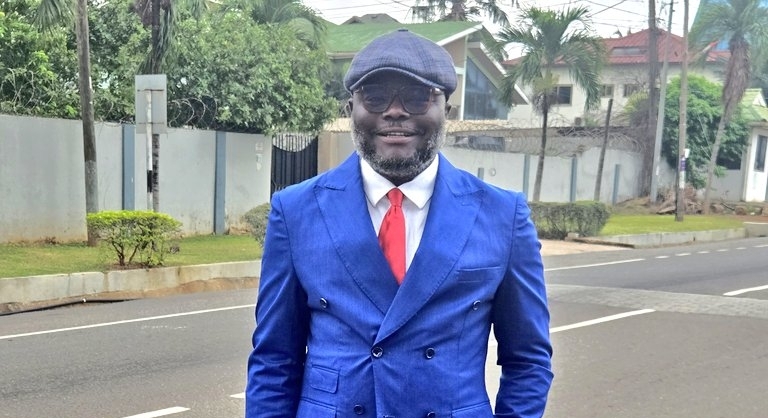
On July 22, 2025, the Supreme Court of Ghana delivered a landmark 4:1 majority decision, quashing a bench warrant issued in January 2020 by Justice Eric Kyei Baffour, then a High Court judge, against Ghanaian-American social commentator Kevin Ekow Baidoo Taylor.
This ruling, presided over by Justice Issifu Omoro Tanko Amadu, with Justices Senyo Dzamefe, Gbiel Simon Suurbaareh, and Philip Bright Mensah in the majority, and Justice Ernest Yao Gaewu dissenting, has sparked significant discourse on the balance between judicial authority and the constitutional guarantees of fair hearing and due process.
As a legal practitioner with a deep commitment to the rule of law, I find this decision both a reaffirmation of fundamental legal principles and a moment for reflection on its broader implications for the issuance of arrest warrants in Ghana.
The genesis of the dispute
The case originated from a Facebook video posted by Kevin Taylor in 2020, in which he criticized Justice Kyei Baffour’s handling of a high-profile trial involving the alleged embezzlement of over $4 million from the National Communications Authority (NCA).
Taylor’s remarks, which included allegations that Justice Kyei Baffour’s promotion to the Court of Appeal was politically motivated, were deemed “scandalous” and “an affront to the justice delivery system” by the judge.
Acting under the inherent powers of the court to protect judicial integrity, Justice Kyei Baffour issued a bench warrant on January 16, 2020, directing the Ghana Police Service and other security agencies to apprehend Taylor and bring him before the court to face contempt proceedings.
Taylor, who was reportedly outside Ghana at the time, challenged the warrant through his counsel, Peter Okudzeto, invoking the supervisory jurisdiction of the Supreme Court.
The core argument was that the warrant violated Taylor’s constitutional right to a fair hearing under Article 19 of the 1992 Constitution, as he was not given an opportunity to respond to the allegations before the warrant was issued. The Supreme Court’s majority agreed, declaring the warrant a legal nullity due to its failure to adhere to due process.
Legal Analysis: The bedrock of due process
The Supreme Court’s decision rests on the foundational principle of audi alteram partem – the right to be heard, which is a cornerstone of natural justice.
Ghana’s 1992 Constitution, particularly Article 19(1), guarantees that no person shall be convicted of a criminal offense unless they have been given a fair hearing. In the context of contempt proceedings, this principle is not diminished.
The Supreme Court has previously underscored this in cases such as *Republic v. Mensa-Bonsu & Others [1996-97] SCGLR 129, where it held that even in summary contempt proceedings, the court must afford the accused an opportunity to respond before punitive measures are imposed.
Justice Kyei Baffour’s issuance of the bench warrant without first summoning Taylor to appear and show cause was deemed a procedural irregularity.
The majority opinion emphasized that while courts possess inherent jurisdiction to punish contempt, this power is not absolute and must be exercised within the bounds of constitutional safeguards. The warrant, described as an “impugned process” issued without due process, was thus quashed, reinforcing the judiciary’s obligation to protect fundamental human rights, including the right to liberty under Article 14.
The lone dissent by Justice Gaewu, while not fully detailed in public reports, appears to have diverged on the interpretation of the court’s discretion in contempt cases.
However, the majority’s stance aligns with established precedents, such as Ex Parte Bannerman [1962] 1 GLR 200, where the court cautioned against the arbitrary use of judicial powers in contempt proceedings, emphasizing the need for procedural fairness.
Legal implications: A cure for a defective order?
The Supreme Court’s ruling unequivocally corrects a defective order. By quashing the warrant, the court addressed a specific miscarriage of justice, ensuring that Taylor was not subjected to an unlawful deprivation of liberty.
This decision serves as a reminder to judicial officers that the power to issue bench warrants, particularly in contempt cases, must be exercised judiciously. The ruling does not diminish the judiciary’s authority to protect its integrity but clarifies that such authority must be balanced against the constitutional rights of individuals.
From a broader perspective, the decision strengthens the judiciary’s commitment to upholding due process, even in cases involving alleged affronts to its dignity.
It sends a clear message to lower courts that procedural shortcuts, however well-intentioned, cannot override constitutional guarantees. This is particularly significant in contempt proceedings, which, due to their summary nature, are prone to abuse if not carefully managed.
A floodgate for challenges or a call for judicial precision?
A critical question arises: Does this ruling open a floodgate for challenges to arrest warrants, or does it simply demand greater precision in their issuance? The answer lies in the delicate balance between judicial authority and individual rights.
The Supreme Court’s decision does not undermine the judiciary’s power to issue bench warrants; rather, it sets a higher standard for their use. Courts must now ensure that warrants, especially in contempt cases, are preceded by a clear opportunity for the accused to be heard, absent exceptional circumstances, such as a demonstrated intent to evade justice.
The fear of a “floodgate” effect; where every arrest warrant faces scrutiny, may be overstated. The ruling is context-specific, addressing a warrant issued without prior notice or hearing.
It does not invalidate warrants issued in compliance with due process, such as those following a failure to comply with a court summons. However, it may encourage more robust legal challenges in cases where procedural irregularities are evident, particularly in high-profile or politically charged matters.
This decision also has implications for freedom of expression. Taylor’s commentary, while provocative, was framed as public interest journalism. The Supreme Court’s ruling indirectly affirms that criticism of the judiciary, even if deemed offensive, does not automatically justify summary punitive measures.
This aligns with international human rights standards, such as those articulated in the Sunday Times v. United Kingdom (1979) case by the European Court of Human Rights, which emphasized that freedom of expression includes the right to critique judicial processes, provided it does not cross into incitement or defamation.
Future issuance of arrest warrants: A call for clarity
For future issuance of arrest warrants, this ruling imposes a duty on judges to exercise restraint and ensure procedural fairness. Courts must document efforts to notify the accused and provide a reasonable opportunity to respond before resorting to coercive measures like bench warrants.
This is particularly crucial in cases involving individuals outside the jurisdiction, as was the case with Taylor, who was reportedly abroad when the warrant was issued.
To avoid similar challenges, courts could adopt a standardized protocol for contempt proceedings, ensuring that:
- The accused is formally notified of the allegations.
- A summons is issued before a warrant, unless there is evidence of deliberate non-compliance.
- The principles of natural justice are explicitly considered in the decision-making process.
Such measures would not only safeguard individual rights but also enhance public confidence in the judiciary’s impartiality.
A human perspective: Balancing justice and liberty
As a Ghanaian lawyer, I am acutely aware of the tensions that arise when judicial authority is perceived to clash with free speech. Kevin Taylor’s case resonates with many who view the judiciary as both a guardian of justice and a potential arena for overreach.
The Supreme Court’s ruling is a victory for those who feared that Taylor’s warrant was an attempt to silence dissent. Yet, it also acknowledges the judiciary’s legitimate need to protect its integrity from baseless attacks. The challenge moving forward is to ensure that this balance is maintained without stifling open discourse or undermining judicial authority.
In my practice at Africa Law Focus, I have seen firsthand how legal disputes can shape public perceptions of justice. The Supreme Court’s decision in this case is a step toward reinforcing trust in our judicial system. It reminds us that the law is not a blunt instrument but a tool for fairness, wielded with precision and humanity.
Conclusion
The Supreme Court’s 4:1 decision to quash the bench warrant against Kevin Taylor is a triumph for due process and a corrective measure for a defective order. It does not open a floodgate for frivolous challenges but rather sets a precedent for judicial accountability and procedural rigor.
As Ghana’s judiciary navigates the complexities of contempt proceedings and free expression, this ruling serves as a guiding light, urging courts to uphold the principles of natural justice while safeguarding their authority.
For legal practitioners, scholars, and citizens alike, it is a call to remain vigilant in protecting the delicate balance between liberty and justice.
Kwame Owusu Danso, Esq., is a Partner at Africa Law Focus, a legal consultancy dedicated to advancing the rule of law across the continent.
DISCLAIMER: The Views, Comments, Opinions, Contributions and Statements made by Readers and Contributors on this platform do not necessarily represent the views or policy of Multimedia Group Limited.
DISCLAIMER: The Views, Comments, Opinions, Contributions and Statements made by Readers and Contributors on this platform do not necessarily represent the views or policy of Multimedia Group Limited.


